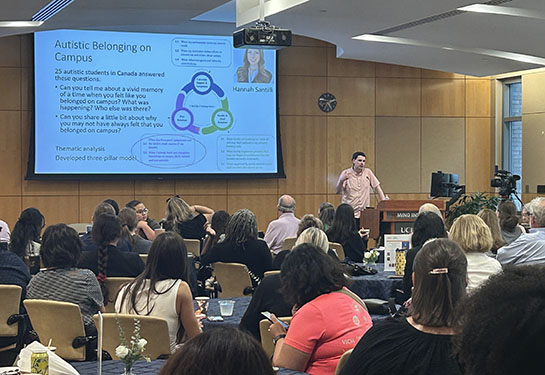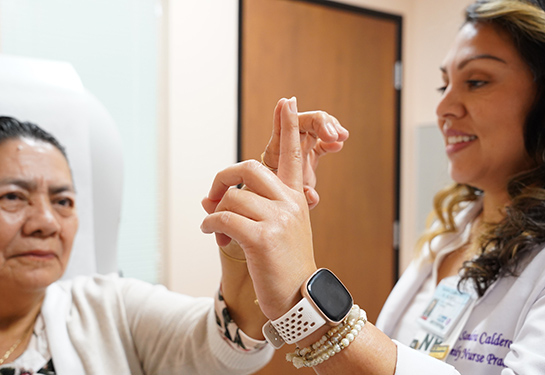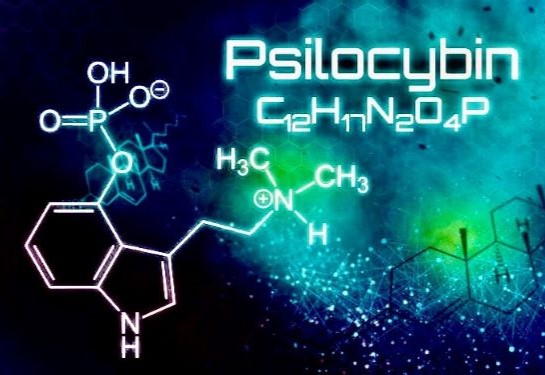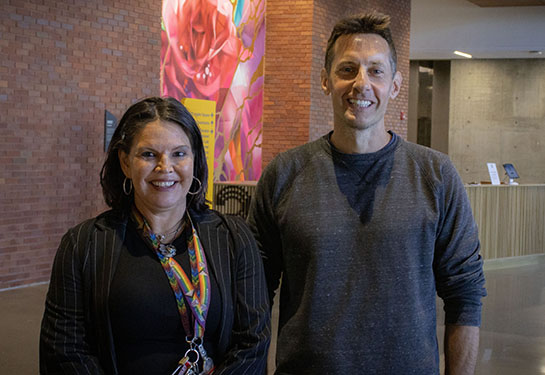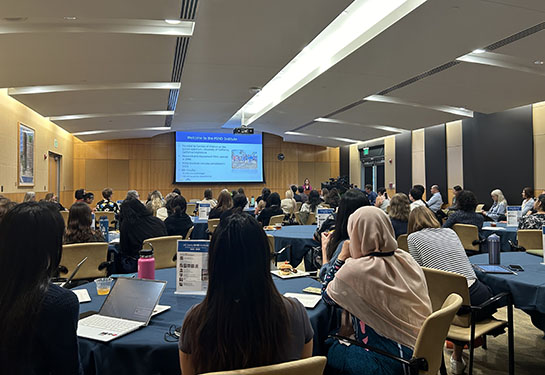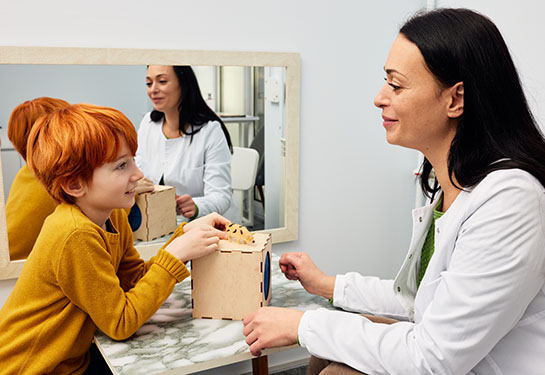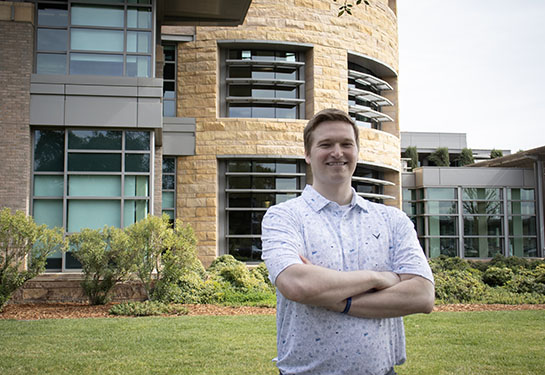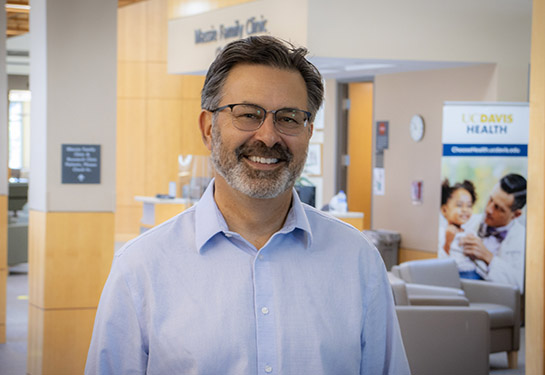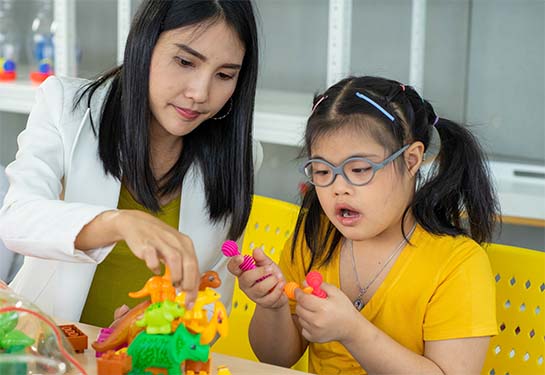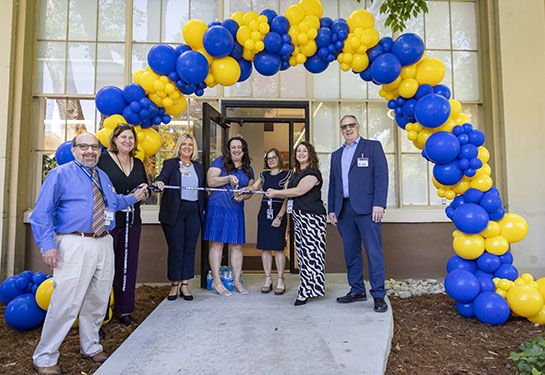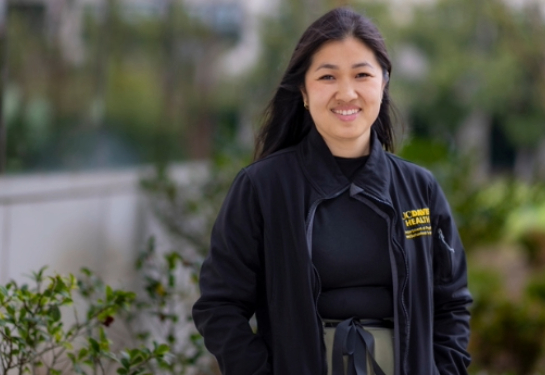-
January 09, 2026
Popular MIND Institute lecture series will address ADHD, autism subtypes, disparities in care and more
The UC Davis MIND Institute’s Distinguished Lecturer series focuses on research and innovation in care for people with neurodevelopmental conditions. The free events are open to all.
Read More
-
November 18, 2025
UC Davis launches major study on language development in children with Down syndrome
A new NIH-funded study led by Professor Angela John Thurman aims to build a roadmap for communication support for children with Down syndrome.
Read More -
November 10, 2025
Low choline levels in the brain associated with anxiety disorders
UC Davis Health researchers found that levels of choline, an essential nutrient, are about 8% lower in the brains of people with anxiety disorders.
Read More -
November 06, 2025
Thomas P. Raley Foundation gift fuels UC Davis dementia caregiver education and research
The gift will expand the DICE Approach caregiver training and support Alzheimer’s Disease Research Center pilot grants
Read More
-
October 07, 2025
Teens in distress turn to tobacco but need more help to quit
UC Davis Comprehensive Cancer Center study finds youth with mental health struggles are screened for tobacco use but rarely get advice on how to quit.
Read More -
October 02, 2025
Psilocybin increased postpartum anxiety and depressive symptoms in animal model
Psilocybin shows potential for treating mental health conditions, but a new mouse study indicates it may pose risks during and after pregnancy.
Read More
-
September 24, 2025
New series from The Lancet offers roadmap for Alzheimer’s treatment in a changing therapeutic landscape
New research from Geriatric Psychiatrist Helen C. Kales looks at strategies for integrating emerging and existing treatments for Alzheimer's disease.
Read More -
September 18, 2025
UC Davis scientists pioneer stem cell gene therapy for Angelman syndrome
UC Davis Health researchers are testing a groundbreaking new therapy for the rare neurodevelopmental condition Angelman syndrome.
Read More -
September 17, 2025
Autistic children more likely to experience persistent gastrointestinal problems
Stomach issues in autistic children are linked to greater challenges with sleep, communication, sensory processing and behavior, finds a study by the UC Davis MIND Institute.
Read More -
September 16, 2025
National Recovery Month: Taking a whole health approach for treating substance use disorders
UC Davis Health psychologist Nicole Schultz talks about the recovery process, relapses, stigma, support and the growing number of treatment options for substance use disorders.
Read More
-
August 26, 2025
MIND Institute event to spotlight path to adulthood for neurodivergent individuals
The MIND Institute kicks off its popular lecture series with a symposium on the transition to adulthood for individuals with autism and other neurodevelopmental conditions.
Read More -
August 25, 2025
Having a sense of purpose may protect against dementia
People who reported a higher sense of purpose in life were about 28% less likely to develop cognitive impairment, according to a new UC Davis study.
Read More -
August 18, 2025
Autism, ADHD or both? Research offers new insights for clinicians
New UC Davis Health research offers insights for clinicians about the connections between autism and ADHD, which commonly occur together.
Read More -
August 01, 2025
Self-harm and autism: Hunting for clues about the challenging behavior
A UC Davis researcher is studying the brain mechanisms behind self-harm in profound autism.
Read More
-
July 30, 2025
$5.5 million federal grant to help researchers build tools for FXTAS treatment trials
UC Davis researchers are helping lead major new research to support clinical trials to treat the genetic condition fragile X-associated tremor/ataxia syndrome.
Read More
-
June 02, 2025
Do microRNAs hold the key to psychiatric and neurodegenerative disorders?
A new study identifies specific microRNAs in the brain that likely contribute to bipolar disorder, depression, schizophrenia, PTSD and Parkinson’s disease.
Read More
-
May 21, 2025
Registration open for 2025 Summer Institute on Neurodevelopmental Disabilities
Registration is open for the 2025 Summer Institute on Neurodevelopmental Disabilities, a conference where experts, families and advocates share research and resources.
Read More -
May 08, 2025
Ribbon cutting marks new expansion for C Street Clinic
UC Davis Health’s C Street Clinic has expanded to offer new psychiatric therapeutics treatments, infusion services and more.
Read More
-
April 09, 2025
Wildfire recovery: What victims say they need most
Wildfire victims have a range of needs, including mental health support and information about wildfire smoke, according to a UC Davis study.
Read More
-
March 18, 2025
Q&A: The challenges and rewards of chief residency
Sandy Ngo Moubarek offers a glimpse into the role of chief residents as vital links between trainees and program leadership.
Read More


